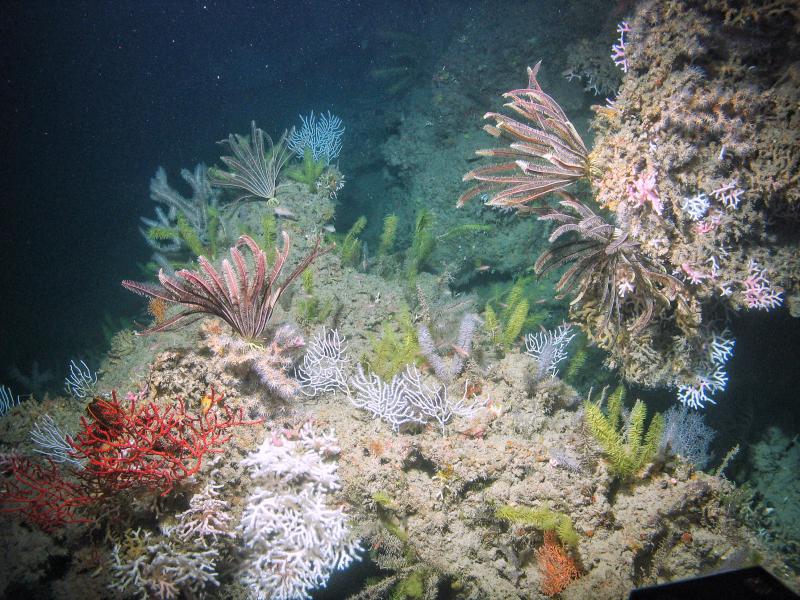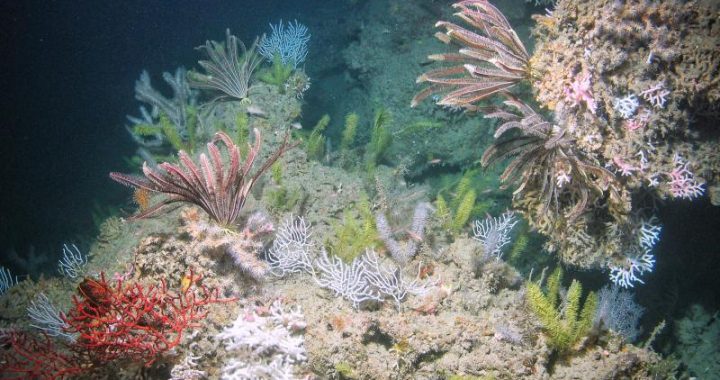February 22, 2023
The data, samples, imagery, and sonar scans gathered by Deepwater Horizon restoration program scientific cruises will advance restoration in some of the Gulf’s most inaccessible yet crucial habitats.

2022 Deepwater Horizon habitat restoration cruises captured many colorful images of habitats in deeper areas of the Gulf of Mexico. Here, crinoids and corals populate the sea floor.
The 2010 Deepwater Horizon oil spill damaged deep-sea habitats over a large area. These complex ecosystems include corals, fish, anemones, sponges, and sea cucumbers—but limited knowledge about these habitats creates challenges for their restoration.
From April through October 2022, NOAA and collaborators embarked on eight scientific cruises in some of the Gulf of Mexico’s deeper waters in the vicinity of the oil spill. The data, samples, imagery, and sonar scans gathered during these cruises will advance restoration in some of the Gulf’s most inaccessible yet crucial habitats.
The cruises support a set of Mesophotic and Deep Benthic Communities projects approved by the Open Ocean Trustee Implementation Group. They’re part of the Deepwater Horizon restoration effort across the Gulf of Mexico.
Using remotely operated and autonomous underwater vehicles, the crews mapped thousands of square miles of seafloor. They collected deep sea coral samples for reproductive studies and created valuable reference data sets near the site of the Deepwater Horizon oil spill.
Despite occasionally challenging conditions—including one ship being temporarily disabled at sea after a lightning strike—the cruises were intensely productive. Here’s a snapshot of some of the work the projects completed in 2022.


Good afternoon thanks for the information